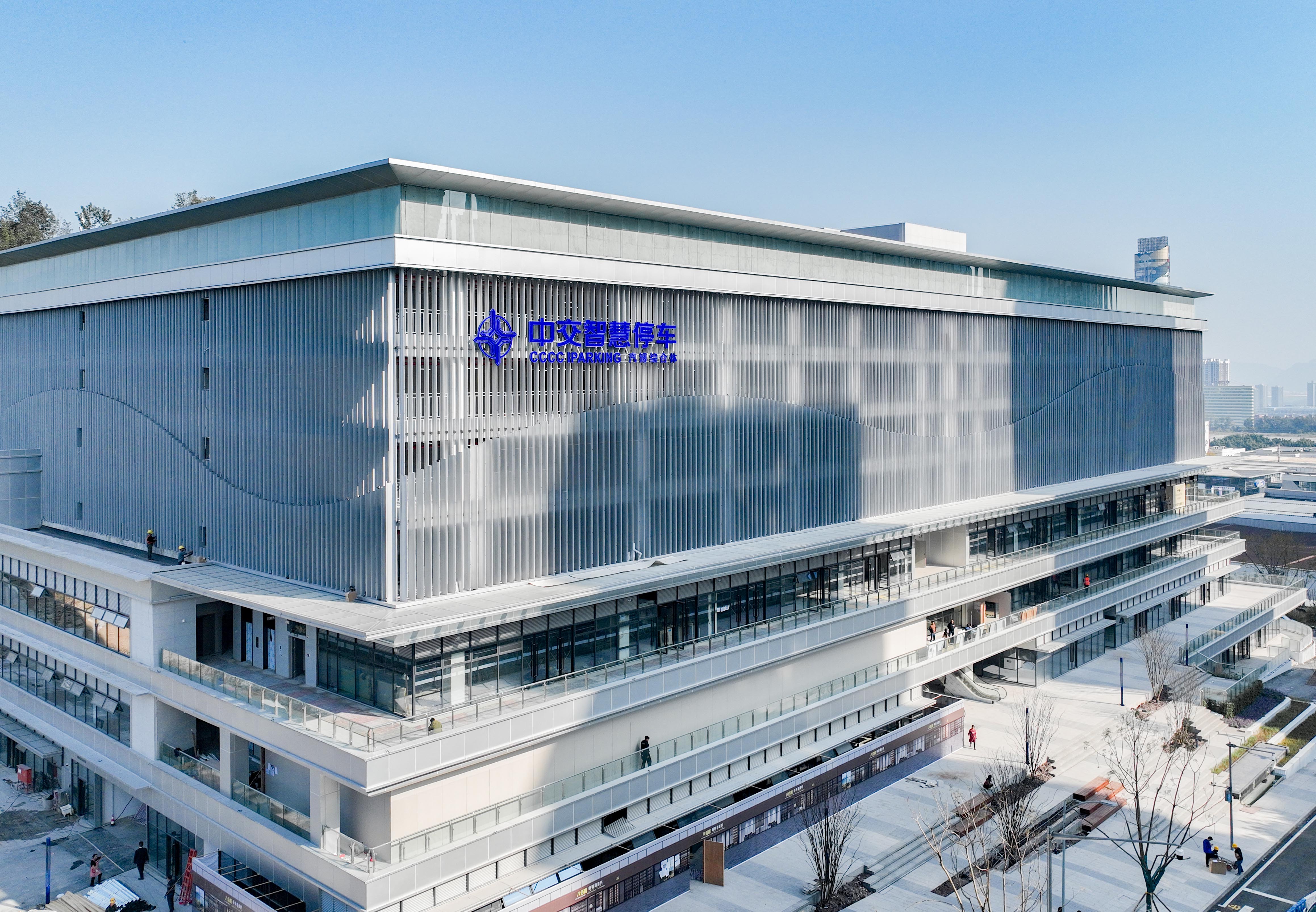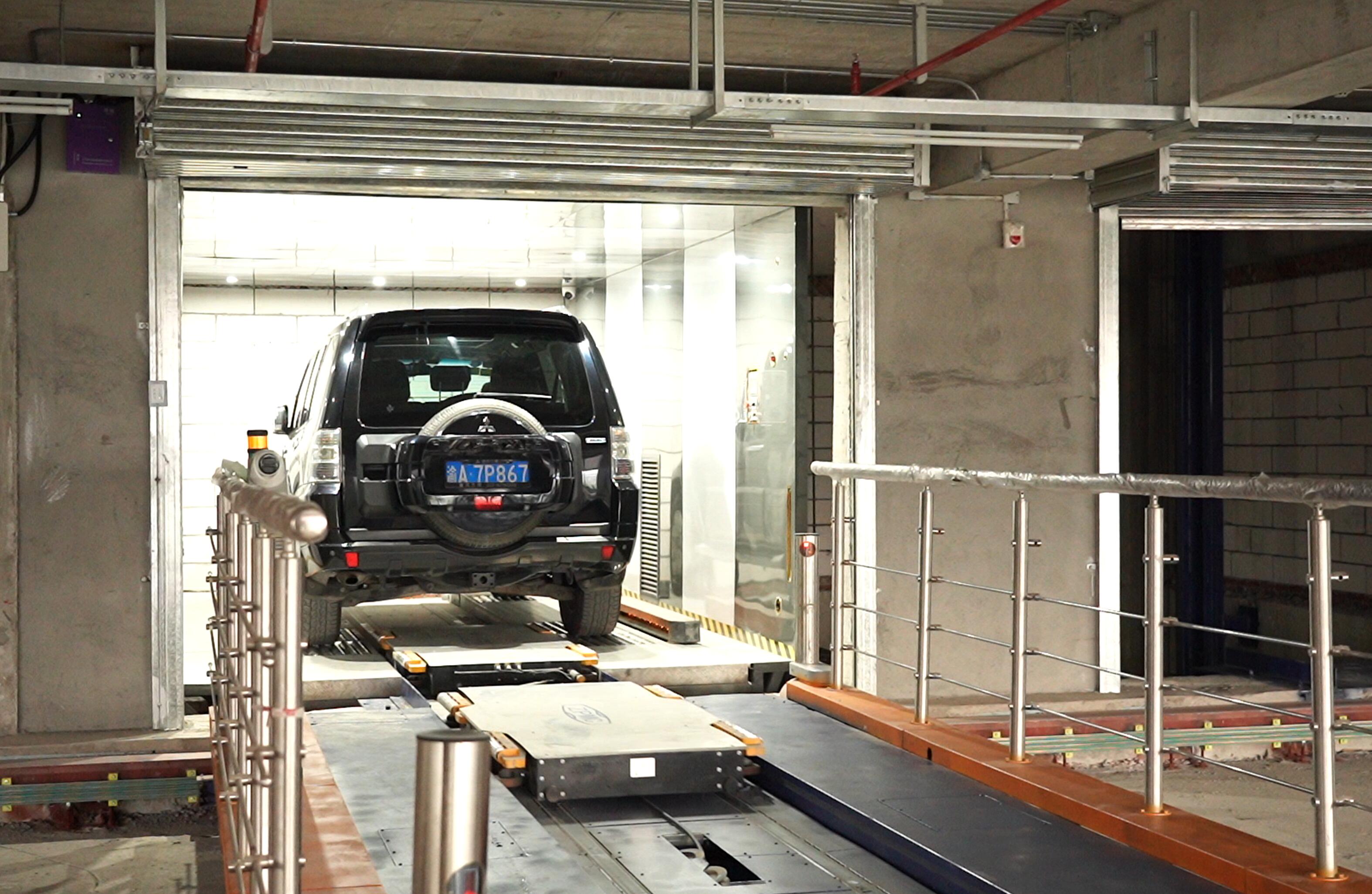 Bridging News
Bridging News
Chongqing Revolutionizes Parking with Cutting-Edge Robotic Technology
Chongqing - Liangjiang New Area introduces a cutting-edge smart parking solution by integrating advanced robotic technology into two major parking complexes, offering an innovative approach to addressing the area's parking challenges.
The Lijia smart parking complex, spanning eight above-ground and two underground levels, offers 550 parking spaces, while the Qibo complex boasts 1,230 spaces across seven above-ground and two underground levels. Both are set to open at the end of this month.

Lijia smart parking complex is set to open this month. (Photo/Liangjiang New Area)
Upon arrival, one can find that the parking complex's rolling door automatically recognizes and opens for vehicles. Cars then autonomously navigate to available spaces, with users confirming shutdown and safety measures through a user-friendly interface. This process takes less than 30 seconds, ensuring efficiency at every step.
Feng Zuguo, chief project manager of the ongoing complexes, detailed the system's capabilities. The parking mechanism ensures precise tire positioning, using carriers on transition platforms to accommodate slight vehicle misalignment through automatic corrections. Elevators lift vehicles to designated parking floors, where a robotic mover awaits to transport and laterally position them into assigned spots.
"The robotic movers can automatically adjust its components' distance in light of vehicles with different wheelbases, adapting various vehicle wheelbases. Additionally, the system has a memory function that once it detects the vehicle's wheelbase, the robotic movers can automatically adjust its position," Feng highlighted.

The robotic mover is ready to transport the vehicle to the designated parking space. (Photo/Wang Min)
Efficiency extends to the retrieval process, allowing users to locate their vehicles swiftly. Safety measures, including AI recognition systems, millimeter-wave life detection radar, micro-quake life detection instruments, unmanned driving technologies, and smart management, ensure a secure environment, even detecting instances where individuals accidentally exit vehicles near the entry or exit point.
Beyond being parking facilities, these complexes aim to transform into vibrant consumption scenarios, offering an array of catering, sports, medical services, entertainment, and vehicle consumption, creating an interactive space for visitors beyond parking needs.
Sustainability is also a key focus. These complexes integrate solar power generation and energy storage solutions, aiming for minimal energy consumption and carbon emissions. For instance, the Lijia complex, equipped with over 500 solar panels, consumes merely 149,600 watt-hours and achieves net-zero energy consumption and emissions annually.
The construction of these complexes also aligns with eco-friendly principles. Approximately 35,000 tons of low-carbon concrete were used in their construction, effectively reducing carbon emissions by about 2,000 tons.
These smart parking complexes in Chongqing's Liangjiang New Area demonstrate improvements in parking technology and efforts towards a more sustainable, efficient, and interactive urban environment.
 Related Stories
Related Stories